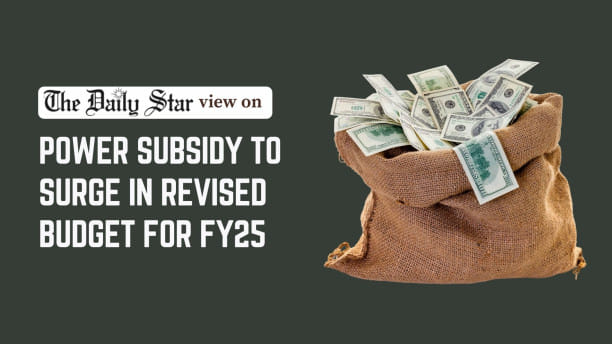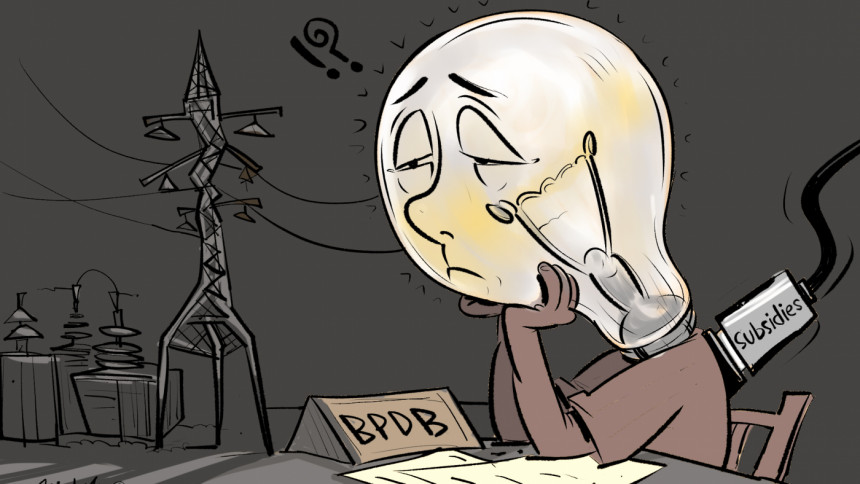Reform power sector to reduce subsidy

The interim government's move to increase power and fertiliser subsidies in the revised FY25 budget by 57.9 percent highlights, once again, the prevailing mess in the power sector. There had been increases in subsidies during Awami League's tenure too, most of which ended up lining the pockets of vested interest groups and eventually increasing the debt burden of the nation. The interim government seems to be following the same prescription, albeit for different reasons. Reportedly, it is looking to increase the power subsidy to Tk 62,000 crore (a 55 percent rise) and the fertiliser subsidy to Tk 28,000 crore (a 64.7 percent rise).
A report by this daily quoted a finance ministry official who explained that the power subsidy increase is being considered so as not to raise power prices during this time of high inflation and to pay off the huge arrears carried over from the previous regime. While we appreciate that the authorities took into account consumers' interests and refrained from increasing prices, they could have, for our long-term benefits, taken measures to address the institutional inefficiency of the sector that are draining resources. It is estimated that as much as Tk 11,444 crore could have been saved by reducing power production costs by 10 percent, which in turn could have kept the subsidy in control.
In fact, a recent study by the Institute for Energy Economics and Financial Analysis (IEEFA) found that the Bangladesh Power Development Board (BPDB) can save Tk 13,800 crore annually—a loss currently covered by government subsidy—just by fixing some core problems. Its recommendations included shifting half of the existing industrial demand to the grid, which is currently met by captive generators, and adding 3,000 megawatts (MW) of renewables, reducing load-shedding, as well as limiting transmission and distribution losses.
During Hasina's tenure, 81 percent of the power subsidy—Tk 39, 406 crore in the revised budget for FY2023-24—was spent on the rented power plants to pay for capacity charges, even when those plants were sitting idle. It is time to critically revisit the collusive deals of the last regime and reduce reliance on rental power plants. According to IEEFA, transitioning to electric systems from gas-driven appliances, like boilers, will help increase BPDB's revenue from selling additional energy while reducing capacity payments to idle plants.
The arrears left by the previous regime may take time to repay, but the interim government should take prudent measures to rectify the situation. Every effort must be made to ensure that the nation is not burdened with additional debt. We can no longer afford inefficiency in the power sector or allow it to run without accountability.



 For all latest news, follow The Daily Star's Google News channel.
For all latest news, follow The Daily Star's Google News channel. 

Comments